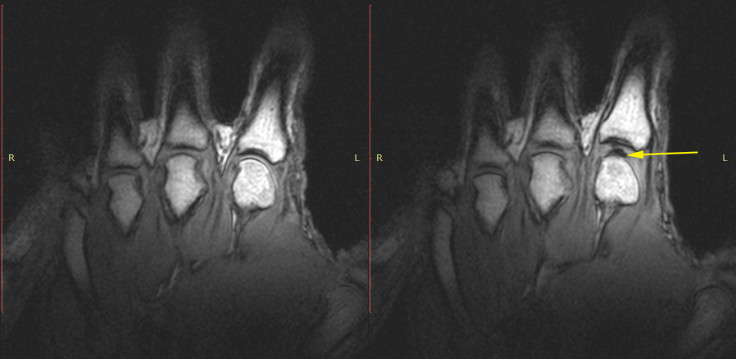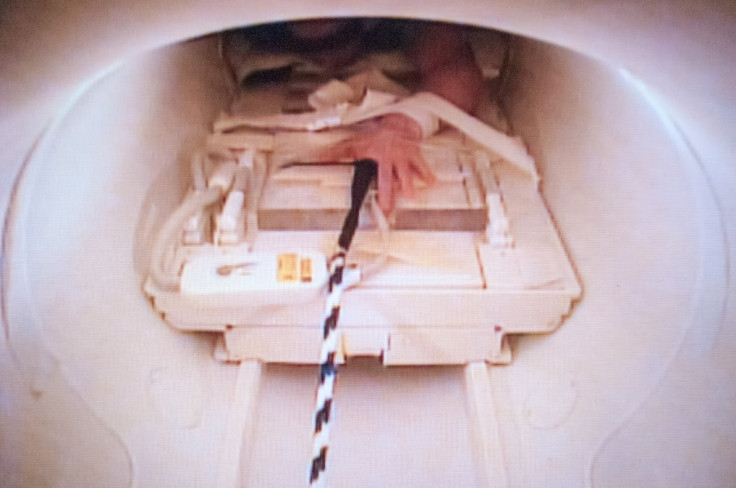Pull my finger study shows what happens when you crack your knuckles

MRI scans have shown exactly what happens when you crack your knuckles to determine the cause of the distinctive popping sound – dubbed the "pull my finger study".
Scientists at the University of Alberta found the sounds made are a result of a cavity forming rapidly inside the joint.
The study, published in the journal PLOS One, puts to bed a long-standing debate about the cause of joint cracking – it was first theorised as being a vapour bubble formation in 1947.
Lead author Greg Kawchuk said: "We call it the 'pull my finger study' - and actually pulled on someone's finger and filmed what happens in the MRI. When you do that, you can actually see very clearly what is happening inside the joints."
Researchers decided to bypass the theories and look directly at the knuckles through an MRI machine. Nanaimo chiropractor Jerome Fryer, who initially put forward a new theory for the knuckle-cracking debate, was found to be able to crack every finger over and over again.
His fingers were inserted into a tube connected to a cable that slowly pulled his knuckle until the joint cracked. MRI video captured each result in real time.

In every event, the cracking and joint separation were associated with a rapid creation of a gas-filled cavity within the synovial fluid, which lubricates the joints.
"It's a little bit like forming a vacuum," Kawchuk explained. "As the joint surfaces suddenly separate, there is no more fluid available to fill the increasing joint volume, so a cavity is created and that event is what's associated with the sound."
They also found a white flash just before cracking that has never been observed before – the scientists think this is water suddenly being drawn together just before the crack.
Researchers say their findings could provide new avenues of study about whether cracking knuckles is good or bad for you. Previously, scientists have found the amount of force needed to crack your knuckles exerts enough energy to damage hard surfaces but habitual knuckle cracking does not appear to cause long-term harm.

The team plans to investigate this next. "The ability to crack your knuckles could be related to joint health," Kawchuk said.
"It may be that we can use this new discovery to see when joint problems begin long before symptoms start, which would give patients and clinicians the possibility of addressing joint problems before they begin."
© Copyright IBTimes 2025. All rights reserved.




















